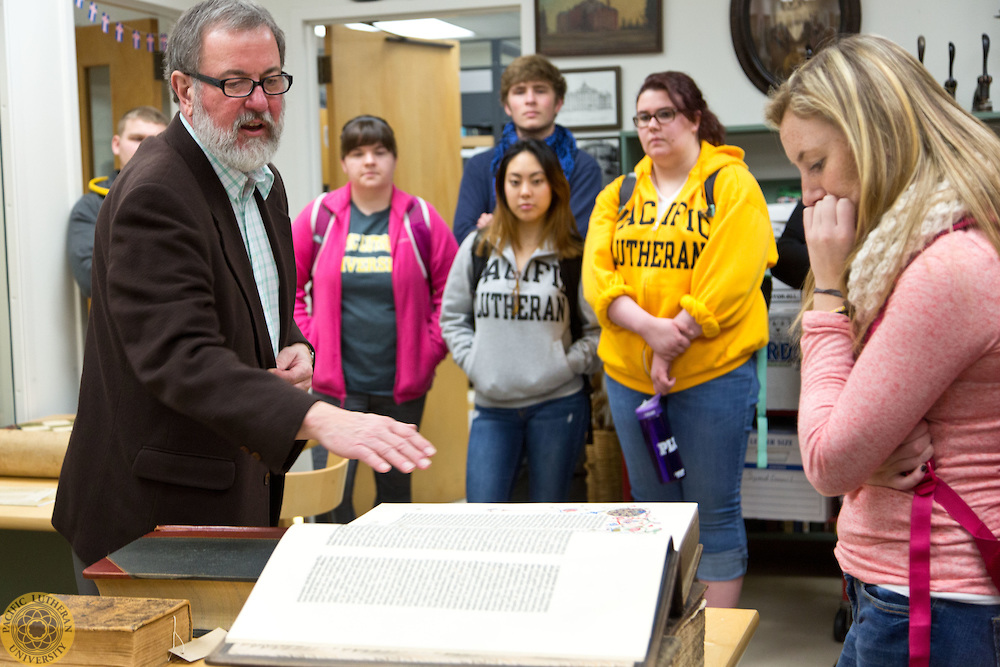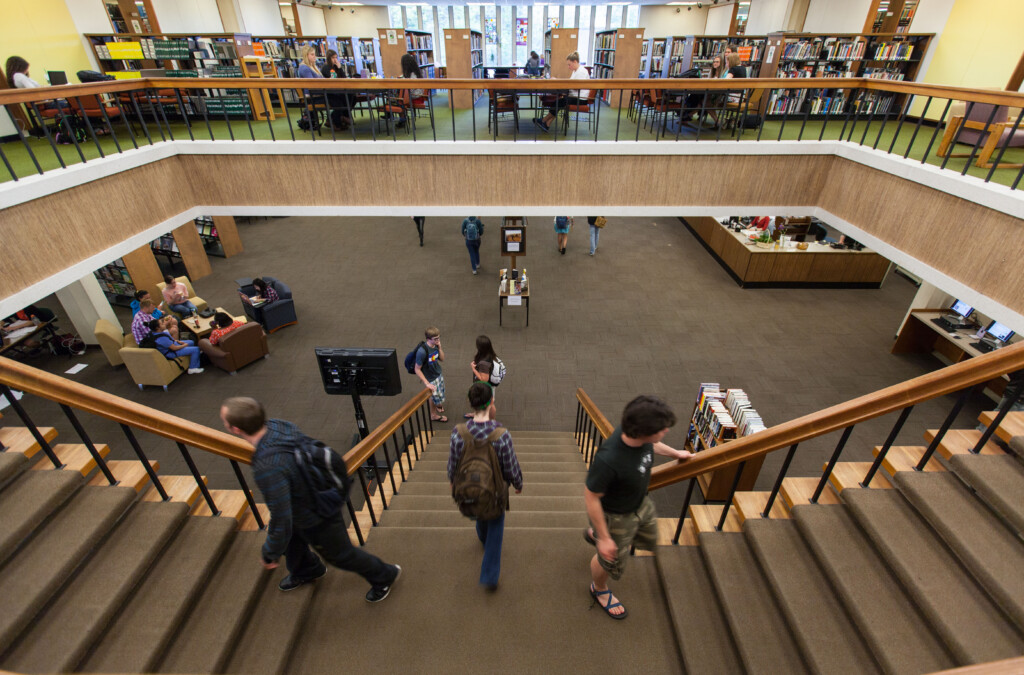The Contemplation of the Humanities
By Douglas Oakman
Originally published in 2016
But, for the time being, here we all are,
Back in the moderate Aristotelian city
Of darning and the Eight-Fifteen, where Euclid’s geometry
And Newton’s mechanics would account for our experience,
And the kitchen table exists because I scrub it.
It seems to have shrunk during the holidays. The streets
Are much narrower than we remembered: we had forgotten
The office was as depressing as this. To those who have seen
The Child, however dimly, however incredulously
The Time Being is, in a sense, the most trying time of all. [1]

Words. Words are the heart of the Humanities. Whether they are in English, Spanish, Latin, or Greek. Italian, French, German, Norwegian, Chinese. Words are like images. Words are images. Words become music to the attentive ear. So there is a natural affection between the Humanities and the Creative Arts.
Both biblical testaments attest that, “In the beginning was the Word.” Both reveal the divinely creative power of words. For the Gospel of John in the New Testament and for the Stoics, λόγος was both Word and Reason. And in the study of words, in the wrestling with language, is equally the quest for humane (self-)understanding and the creative articulation of Truth—for who we are, where we have come from, and where we are going. This is the perennial conversation of the Humanities.
Now Facebook, Twitter, and Email multiply quotidian word-counts. Words without measure—information, disinformation, misinformation—all calling for thoughtful reflection. Our contemporary world is one of business, busy-ness; but contemplation requires leisure, about which the Greek word for leisure σχολή, reminds us in our cognates school, scholar, scholastic, etc.
Some years ago, John Ciardi offered a regular program on NPR called “A Word in Your Ear.” This was a program about fascinating word etymologies, such as the Greek roots of “scholar.” Ciardi also wrote memorable poetry, mining the ancient power of words to show that some things human never change. For instance, these lines from his “Credibility,”
Who could believe an ant in theory?
a giraffe in blueprint?
Ten thousand doctors of what’s possible
could reason half the jungle out of being.
I speak of love, and something more,
to say we are the thing that proves itself
not against reason, but impossibly true,
and therefore to teach reason reason. [2]

Since Plato, the Beautiful, the True, and the Good—these words and the ideals they express—have been significant in humanistic study. Aristotle, Plato’s student, added searching logical analysis in the Politics, Ethics, and Poetics. In the medieval trivium of Grammar, Logic, and Rhetoric, words reigned supreme. But these three are far from trivial! Out of the love of words, Erasmus produced the first printed Greek New Testament (1516). Based upon the Renaissance recovery of ancient languages, Luther translated the German Bible (1534), which shaped most profoundly German language and culture, and also global civilization through the Reformation. Just so, the brilliant translating work of Luther’s contemporary William Tyndale led to one of the most beautiful books in English, the King James Bible. But Francesco Petrarca, Lorenzo Valla, and a host of others in various humanistic disciplines equally played their parts in Renaissance culture. The celebration of the secular was every bit as important as the sacred. The two came into dialog, one whose fiery confrontation has not yet gone cold. Certainly, the roots of the modern Western university are buried deep in this tradition, and out of those roots stem such intellectual achievements as Kant’s magnificent critiques and the poetry of Goethe.
Ours, however, is a time when word usage supplants etymology and neologisms abound in word-play—for good and for ill. May they be for the Good! So, the linguistic philosopher Ludwig Wittgenstein spoke of “word games.”
As Wittgenstein said, “Uttering a word is like striking a note on the keyboard of the imagination.” Language exists not simply to mirror passively some given world of objects. Imaginative language creates new meanings, defines new worlds. [3]
Our own PLU poet laureate Rick Barot was interviewed recently by The Mast. Beauty was his initial inspiration, he said, but now his words strive with the conjunction of beauty and harsh reality. It is always the case in the Humanities that Time and Eternity, Heaven and Hell come to expression in words. So, in “The Poem is a Letter Opener,” Barot speaks of
… a poem that is old and full
of days, a poem like an old china
plate that is the color of time, the dusk
having its supper of fog and people
walking through the fog, the fallen
leaves in the parks like strewn credit
cards, which are also poems, like
the typewriter writing the letter
one little tooth at a time, one love at
a time, in our city of paper and crows. [4]

The ironies of our Time Being, brought to imaginative expression, perhaps lie in our increasing forgetfulness of the humanizing gifts from the past. Even the meaning of liberal arts education has become confused and debased by the contemporary industrialization of education. The Humanities embody the two central concerns of liberal education traced by Bruce Kimball in his history Orators and Philosophers [5]: recollection and the study of words. In the quest for wisdom —shaping powerful words that free us and move us— this is what the Humanist pursues. Though Plato once wrote that “there is an old quarrel between philosophy and poetry” (Republic 607b5–6), today, poetry and wisdom’s love provide in rapprochement the fruitful grounds for a renewed Humanistic Way. Wallace Stevens put this poetically,
As a man and woman meet and love forthwith.
Perhaps there are moments of awakening,
Extreme, fortuitous, personal, in which
We more than awaken, sit on the edge of sleep,
As on an elevation, and behold
The academies like structures in a mist. [6]
The Humanist tradition began with ancient ideals and searching discussions. During the Renaissance it took on rhetorical and metaphorical wings. Maybe it was once only for the rich, but now it belongs to us all. Valor and beauty, the search for the true and the good, the examined life. These are very deep values in this tradition, and they have empowered humanistic education ever since. This is an education profoundly concerned with enduring meaning apart from utility. In a world gone mad with technology and technocrats, the humanist still asks the questions, why are we here? Is this truly good? What is the right path? What indeed is beauty? Sometimes the answers, as they come in the myths of sacred writ or secular poetry, or in the considered thoughts of the philosophers, are a clue that the best life requires contemplation, and not simply manipulation.
As the movie screen says, Ars gratia artis.

Works Cited
1 – W. H. Auden, “For the Time Being: A Christmas Oratorio,” in W. H. Auden: Collected Poems, edited by Edward Mendelson (New York: Random House, 1976), 307-8.
2 – John Ciardi, “Credibility,” in The Achievement of John Ciardi, by Miller Williams (Glenview, IL: Scott, Foresman and Company, 1969),73.
3 – Qtd. in Robert N. Bellah, Beyond Belief: Religion in a Post-Traditional World (New York: Harper & Row, 1970), 242-43.
4 – Rick Barot, “The Poem is a Letter Opener,” in Chord (Louisville, KY: Sarabande Books, 2015), 19-20.
5 – Bruce Kimball, Orators and Philosophers: A History of the Idea of Liberal Education (With a Foreword by Joseph L. Featherstone; New York and London: Teachers College, Columbia University, 1986).
6 – Wallace Stevens, from “Notes Toward a Supreme Fiction” in Wallace Stevens: Collected Poetry and Prose (The Library of America; New York: Literary Classics of the United States, 1997), 334.


